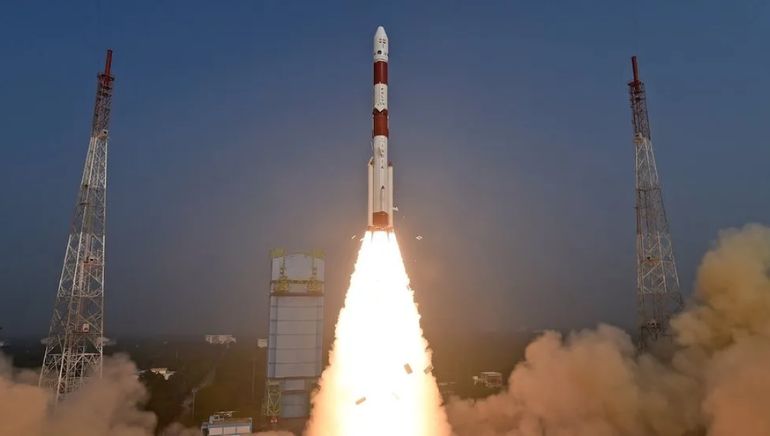On January 1 at 9:10 am, the Indian Space Research Organisation (ISRO) marked a significant milestone with the successful launch of the X-Ray Polarimeter Satellite (XPoSat) from the Satish Dhawan Space Centre in Sriharikota, Andhra Pradesh.
XPoSat is India’s first dedicated scientific satellite designed specifically for measuring the space-based polarization of X-ray emissions from celestial sources.
This achievement propels India to the forefront of space exploration, making it the second country globally to deploy a specialized in-space observatory for studying black holes and neutron stars. The liftoff, following thorough system checks and weather condition assessments, occurred precisely as scheduled, affirming the mission’s meticulous planning.
The ongoing mission has progressed seamlessly through distinct phases, with XPoSat successfully inserted into a 650 km orbit with a six-degree inclination. The satellite’s health parameters are reported as normal, and power generation has commenced successfully.
XPoSat’s primary mission is groundbreaking, aiming to unravel the mechanism and geometry of celestial sources by studying the orientation of light vibrations. Equipped with two payloads, POLIX and XSPECT, the satellite acts as a sophisticated X-ray camera and a scientific detective, respectively, enabling scientists to gain valuable insights into the behavior of X-rays in space.
ISRO Chairperson S. Somnath expressed enthusiasm for the successful start to the new year and hinted at more promising launches in 2024, including the highly anticipated Gaganyaan mission. After the successful launch of the XPosSat satellite on 1 January, Union Minister Jitendra Singh wrote, “ISRO begins 2024 in style”.
“Proud to be associated with the Department of Space at a time when Team ISRO continues to accomplish one success after the other,” the minister added.















